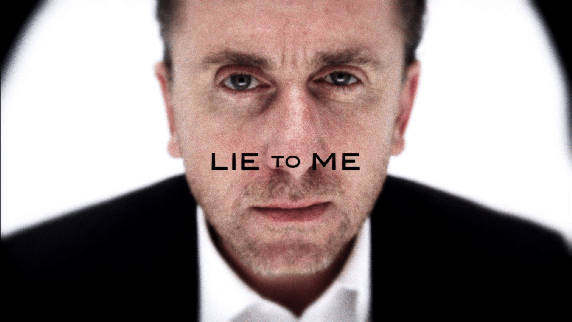|
In a high school English class, once, my teacher told me, "Make the unfamiliar familiar; make the familiar unfamiliar."
It's good advice -- and it helps explain the existence of movie tropes. (That, and the fact that, if you want to write a Hollywood blockbuster, you have to follow a pretty simple and predictable format -- see also Save the Cat: The Last Book on Screenwriting You'll Ever Need, by Blake Snyder. You'll love it, even if you have no intention of ever writing a movie.)
Since most people don't know a world-class geneticist, astronaut, geophysicist, or whatever, many writers rely on a familiar (and convenient) trope:
The Well-Rounded Scientist. Scientists on the screen are often depicted as, say, a microbiologist who also has the skills of a mechanical engineer, computer scientist, medical doctor, chemist, botanist, and electrical engineer. He (or, occasionally, she) can do all things STEM. Oh! And because he’s “educated” and a “nerd,” he can also quote Shakespeare, Nietzsche, Dickens, and Battlestar Galactica. And, in the case of Breaking Bad, singing karaoke in Arabic. In real life, most scientists are extremely good at the very specific thing they’re good at. They’re too obsessed with their science to go to the opera and read classical literature all the time. They often don’t even know what’s going on in other fields of science. It's like this: When you get your bachelor’s in science, you know a little bit about a lot. When you get your Ph.D. in science, you know a lot about a little. Honorable mention: The Human Lie Detector. I took this amazing psycholinguistics class once, called Language and Deception. It’s about the language and psychology of lying. Psychologists and detectives in movies are often human lie detectors — they’re “trained” to know when people are lying. In real life, even the world’s top “experts” only do a little better than chance at lie detection. (Obviously, lab experiments are very different from real world experience, but still. In a lab setting, these "human lie detectors" are hardly rocking it.) There is one surefire way to know when someone’s lying — and it’s not that they glance off to the left a lot or break eye contact. It’s to know the truth. If I learned one thing in Language and Deception, it's that the only way to know when someone's lying is to already know the truth. Of course, there are some tricks that you can use to slightly increase your odds of detecting lies — people who are lying, for example, use different pronouns than people who are telling the truth. They don’t talk about the things they didn’t see or notice. But knowing these will only increase your odds of lie detection a little. Learn more in The Secret Life of Pronouns: What Our Words Say About Us, by James Pennebaker. He's a great example of an innovative and interdisciplinary researcher -- but take these studies with a grain of salt, because some of them are stronger and more convincing than others. Now, to be fair, the TV series Lie to Me is based on real research by a real scientist named Paul Ekman. In Emotions Revealed: Recognizing Faces and Feelings to Improve Communication and Emotional Life, Ekman shared his research on micro expressions, or brief facial expressions that last fractions of a second. Yet Ekman's own research revealed that there is no microexpression for deceit, per se. There is no gesture, facial expression, or muscle twitch that itself indicates a person is lying. Sometimes, there are clues of emotions don't fit what the person is saying. But microexpressions do not show what intentions the deceiver is trying to conceal. They only provide the fact that there was emotional arousal in the context of the situation. (Which is basically how a polygraph works -- and why they can so often be wrong.) Here's what is true about microexpressions: As I wrote in These Specific Behaviors Will Make You More Charismatic, Starting RIGHT Now, "It only takes 17 milliseconds to register someone's emotions. When you're with someone, but you're distracted by other thoughts or emotions, people notice. Maybe your eyes glaze over, or your reactions are a little off or delayed. Or maybe you're being super obvious about it and using a mobile device while "listening" to them. This makes people feel... bad. Like they're not important. Or like you're not being authentic. And they're right -- you're not. You're thinking about something else -- whether it's an upcoming deadline, a personal insecurity, or a new crush. They do not have your undivided attention." Read more > That's why Olivia Fox Cabane encourages her readers in her book, The Charisma Myth: How Anyone Can Master the Art and Science of Personal Magnetism, to acknowledge the elephant in the room. If your sweater itches, if you're too hot or too cold, if you're worried about missing the bus, it shows. People see that you're uncomfortable, but they don't understand why. Being human, they assume it's about them. This truth... is why shows like Lie to Me and Sherlock (and The Martian, and Iron Man, and so many others) work. In order for a show to be captivating and likable, everything has to be believable about it... except one thing. If you can accept that, okay, Dr. Cal Lightman has a superhuman ability to do something I can somewhat do naturally, the rest of the show makes sense. If you can accept that, okay, the botanist is also a mechanical, chemical and electrical engineer (and the U.S. government is willing to spend hundreds of millions of dollars on his rescue), then The Martian makes sense. If you can accept that the Arc Reactor is made of pure energy, then Iron Man makes sense. Going back to Blake Snyder's book, Save the Cat -- tropes work because, for the most part, movie producers and audiences alike want you to "give them the same thing -- but different." For the most part, I agree. But the myth of the well-rounded scientist is one that will always make me scoff.
1 Comment
Gaslighting Gus
10/18/2016 01:33:15 pm
Reply
Leave a Reply. |
About the Author

Eva is a content specialist with a passion for play, travel... and a little bit of girl power. Read more >
Want to support The Happy Talent? CLICK HERE!
Or Find me on Patreon!
What's Popular on The Happy Talent:
Trending in Dating and Relationships:
What's Popular in Science: Playfulness and Leisure Skills:
Popular in Psychology and Social Skills:
Categories
All
|






























 RSS Feed
RSS Feed